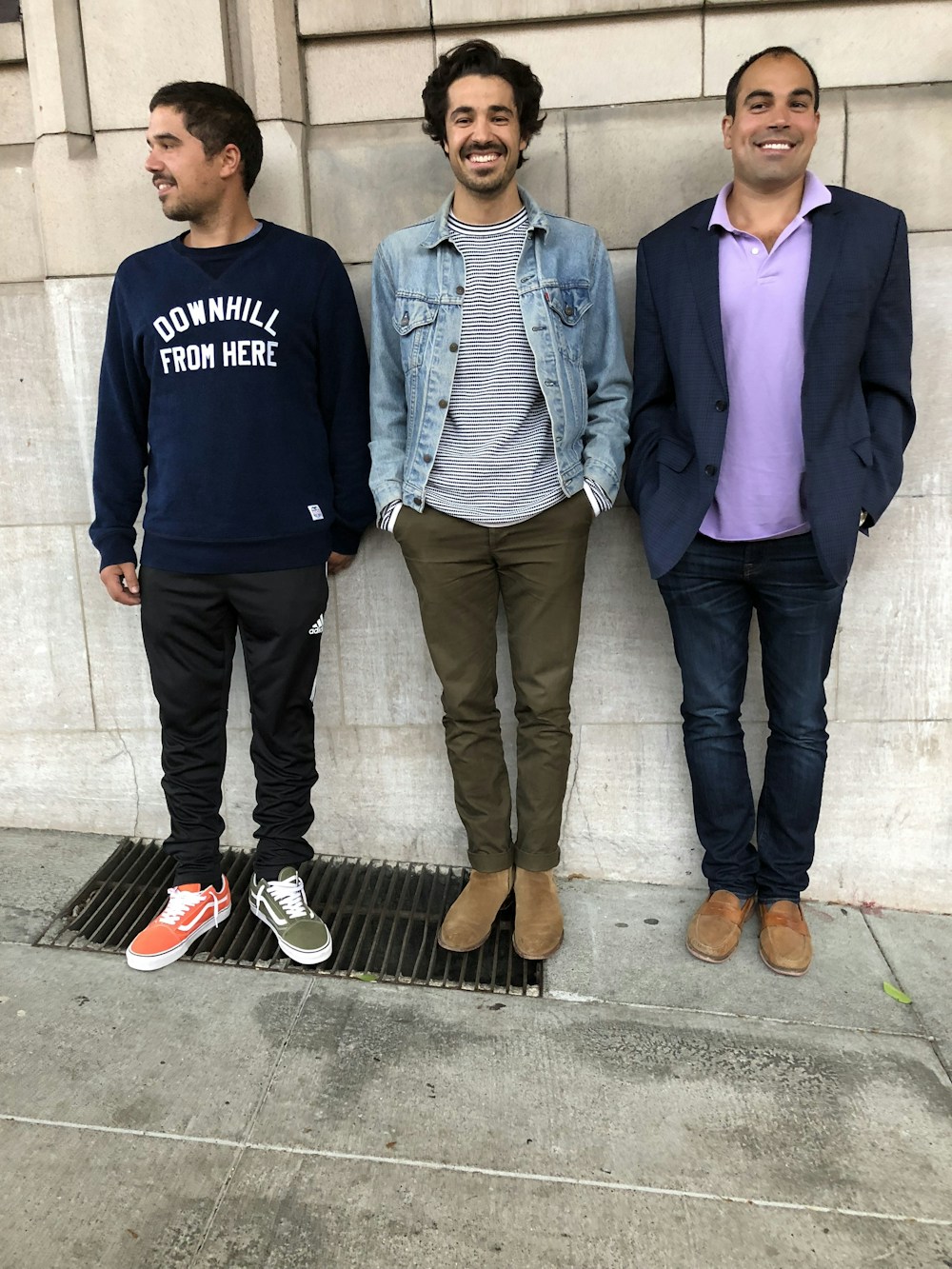Sep. 16, 2022
•6 min read
Summer 2018. The day was a grey heat. Air that hung to you. It was the first full day of World Cup matches, and Three Lions Pub was humming, expectant. Spain and Portugal weren’t facing off for another couple of hours. I was there for Iran and Morocco. From what I could tell, there were about ten Iranians in the bar—my dad, his two friends and me among them. Our group towards the front, and another group of five or so towards the back.
I sat with my dad and his friends—all born and raised in Iran, all U.S. citizens today. Right now, they were all realists: Iran wasn’t going to win the cup, but, still, they weren’t immune to the mid-game sweats. Without taking their eyes off the match, they rotated their beer glasses on the table’s dark gummy wood, drank. Iran squandered possession after possession, and Morocco squandered goal-scoring opportunity after goal-scoring opportunity.
Late in the second half, a man that knows Javad—one of the guys at our table—walked into the pub and asked, “How’s it going, John?” John is Javad’s unofficial adopted name.*
Javad started introducing himself as John when he came to the U.S. for college. I imagine it’s how he might have avoided fifteen-minute explainers and bar fights in dim, disco-filled rooms when people, through booze-bleared eyes, registered his olive face and asked, “So, what are you? Italian?” It was the 1980s. The tensions of the Iranian Hostage Crisis had hardly dissipated. Today, when Javad introduces himself with his western name, maybe it’s because he’s not up to talking about Hezbollah, or how ridiculous a theocracy seems today. Perhaps it’s just easier. Perhaps he still expects the worst.
I’ve known Javad since I was teenager, and it used to sting me when he introduced himself as John to people who weren’t Iranian. I wonder, now, if I was jealous I hadn’t done the same. Or maybe it was that this man who is fifty-percent more Iranian than me seemed fifty-percent less proud to be Iranian than I am. I didn’t realize then that I had a luxurious choice of identity he did not. My skin looks more like my mom’s—a white woman raised in rural Wisconsin. His skin announces what mine hides. The discomfort I felt from John’s introductions faded. I’m not sure it will with my brother.
A couple years ago on Christmas day, my brothers and a couple of our cousins sat around my parent’s kitchen table. Family ambled around the house. The kitchen was fragrant with ham and green-bean casserole. My brothers, my father and I abided my mother’s love for American holiday staples, though we loved when she went rogue and grilled kebab koobideh in the falling snow. At the time, my older brother, Arya, was in the middle of a yearlong, pre-residency internship at a hospital in Dallas, Texas. He was telling us about it when one of our cousins from our mother’s side—at this moment he was wearing a camouflage hoodie—said that Arya’s patients in Texas probably “have a time” pronouncing his name.
Arya shrugged, “Yeah. Most of the time I just introduce myself as Keith.”
I fumbled. “You introduce yourself as Keith?”
It was about efficiency, staying on task. About avoiding elliptical conversations that had nothing to do with the malady at hand. I suddenly felt protective. I’d always refused, like most younger brothers do, any of my older brother’s vulnerabilities. But he was fine. It was me.
My name has never been easy for me to love. When I was a kid, it felt strange to think I would one day be the age I am now and still be named Kia. The name provided no clues about the future that waited for me. In movies, in books, none of the characters shared my name.
One spring weekend in the mid-nineties, my brothers and I were staying with my grandparents. On Saturday morning, I found my grandfather at the kitchen table drinking coffee. The kitchen looked out onto a wide field, bound on either side by stands of pine. In the just-visible distance, you could make out a pale blue house. He said through a mouthful of toast that “they” had named a car company after me, and tipped the newspaper my way. It was the first time I had ever seen my name written by anyone other than myself. You already know how nearly every introduction went for the next decade, and how most still go today. Yeah, like the car.
Even though I didn’t (and still don’t) know anyone who shares my name, it never completely marooned me because I also didn’t (and still don’t) know anyone who shares my brother’s name. If his name was called, mine would usually follow. We were bound by these badges—they flashed a shared history.
When I started looking for a job after college, I included in the top right corner of my resume, against gut instinct, a photograph of myself. It felt sticky, vain. I told my friends it was because I wanted people to know what to expect if I got an interview. On the printed page, out my brother’s name’s orbit, my own name looked strange amid the jargon. A misplaced planet. The photo felt like a retaliation against isolation, assumption. It was a way to position myself among applicants, set a mirror before the reader, on a document whose central utility should have been to set myself apart. Look at me, maybe I look like you. I think about my father. I think about how when he gained American citizenship he severed his surname. Had he not dismantled it, my last name would be Tagahvinamin. Instead I was born Namin. He says he abbreviated it because he thought a shorter name would be easier for people to understand over the phone (it isn’t). To think a name could be an inconvenience that can be treated like a cut of meat. Trim the gristle. Make it palatable. My name is I hope you’re ok with this.
This spring, my family spent three days together in Colorado. Arya’s wife was pregnant, so the trip felt like a happy last chance: soon, we’d know each other in new roles. It had been a couple years since I first learned he sometimes introduced himself as Keith at work. I hadn’t asked about it since, and, thinking about John watching the world cup last summer, I was curious. I asked him if, now in his residency in Missouri, he still introduces himself as Keith to his patients. He told me it’s a different name now. Told me to guess. Said I’ll never guess. So I started at what I thought was the predictable end of the spectrum. John. Peter. Paul. Even better.
He said, Billie.
It’s a take on his middle name, William. Which for the moment I had failed to remember.
When I was born, Arya was already here. His name was the first song I learned. Two syllables. I’d sing it in three. Say this name. Know you’re safe. Say this name. Know night is not so long. Say this name. You’re not alone.
It’s hard for me not to imagine the first time Arya pulled the covers up over his name. Was it premeditated? Swirling a glass of red wine in his right hand, did he ask his wife if she thought it was a good idea? Had he waited for dusk, for the way it can dull reality’s edges? Or, did it happen without any thought at all? A gut reaction to what he expected his next patient to say, because of what his three previous patients said? And how did this new name feel in his mouth? Do we, at our must vulnerable, crave care from someone we feel we don’t need to work to understand? Arya is two syllables. An abrupt beginning, a softer setting down. He traded that for a single, sharp sound. Keith. A consonant rush in one swift exhalation. A jet just over the roof, gone before the boom. Then he traded that for Billie. I’ve never called him Billie in my life.
The game was still scoreless. I went to the bar and ordered—because I’d be heading back to work after the game—another non-alcoholic beer. The first one I drank had surprised me in two ways. First, by how precisely it tasted like beer. Second, by how quickly I thought the bartender could have presumed I ordered a non-alcoholic beer because I was rooting for a country where alcohol is illegal. So, when I ordered another NA Paulaner, I told the bartender how surprised I was it tasted so good. As if to convince her I drink regular beer, too. As if to convince her I was in the right place. Can this be so different from Arya’s anxiety in his patients’ rooms? When we feel unexpected, we try to offer our most familiar contours.
Arya and I have lived in different cities now for just over a decade, and it feels like there’s a swelling prairie between us. I’ve accepted the six-hour drive through all of Illinois’ cornfields at sunset after work on a Friday just so I can have a beer with him on Saturday. I’ve acclimated to that effort. But when I imagine him introducing himself as Billie, it’s still an amnesiac vision: I recognize the face. I know why he’s wearing a white coat. His small smile arches like I expect it to. Then the name. Then the scrambling for landmarks. The space between us becomes windblown. His name was a familiarity, a connection, that didn’t depend on effort. A constant beacon. Billie feels like an erasure of our history. When he introduces himself as Billie, it’s hard to imagine someone believing he has a brother named Kia.
Familiarity unspools in our sleep, when we work, when we’re trying to stay on top of our shit. We do not get to choose the distance between ourselves and the ones we love. Rather, we can only choose whether we walk it.
In stoppage time, Iran earned a corner kick. Ehsan Hajsafi crossed the ball, and in a split-second flurry it was directed into the back of the net, accidentally, by a Moroccan player, Aziz Bouhaddouz. An own goal. Our table became an uncoordinated primal scream. At the other end of the bar, I saw a middle-aged Iranian woman, clad in a velvety pink jumpsuit, shaking it. My dad looked at me, breathless, “Can you believe this?” Javad shook the shoulders of the man to his left. We were celebrating what most of the time feels more distant than it should. I wasn’t thinking about Arya’s new name. I only wondered if he was watching the game—if he was celebrating the same way John was now. Smiling the same way I was now.
*Javad’s name has been changed for privacy.
Photo by Yasin Alsbey on Unsplash
More Articles by Kia Namin
Nov. 13, 2018
•2 min read
Feb. 2, 2018
•4 min read
Oct. 3, 2023
•8 min read
About the author
Kia lives in Milwaukee with his wife.



